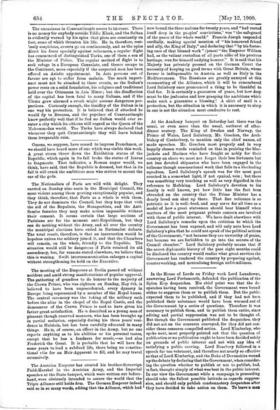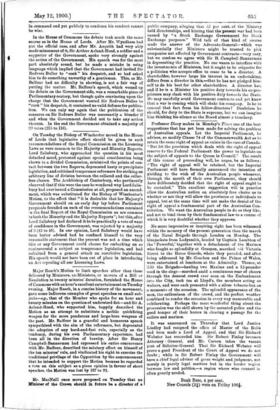In the House of Lords on Friday week Lord Lansdowne,
answering Lord Portsmouth, defended the publication of the Spion Kop despatches. His chief point was that the de- spatches having been received, the Government were bound either to suppress them or to publish them. But the public expected them to be published, and if they had not been published their substance would have been wormed out of the Government by a series of questions. Therefore it was necessary to publish them, and to publish them entire, since editing and partial suppression was not to be thought of. But though the Government published the despatches, they did not act on the censures conveyed, for they did not con- sider those censures compelled action. Lord Kimberley, who spoke next, most properly pointed out that the question of publication or no publication ought to have been decided solely on grounds of public interest and not with any idea of satisfying a public craving. Lord Rosebery followed in a speech far too vehement, and therefore not nearly so effective as that of Lord Kimberley, and the Duke of Devonshire wound up the debate by declaring that the Government, when consider. ing the question whether to publish or not to publish, had, in fact, thought simply of what was best in the public interest. In our view the Government while a campaign is proceeding should take the fullest possible latitude as regards suppres- sion, and should only publish condemnatory despatches after they have decided to take action on them. To leave a man
in command and yet publicly to condemn his conduct cannot be wise.







































 Previous page
Previous page